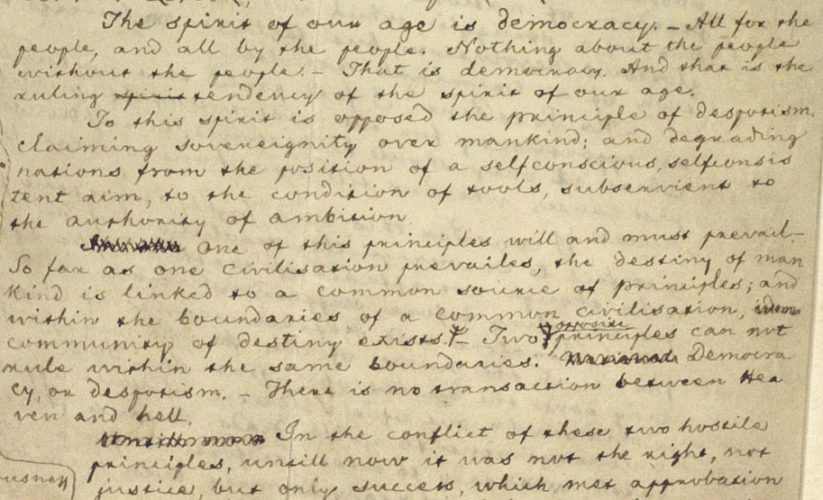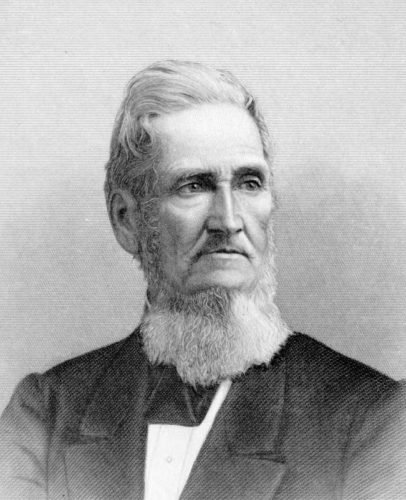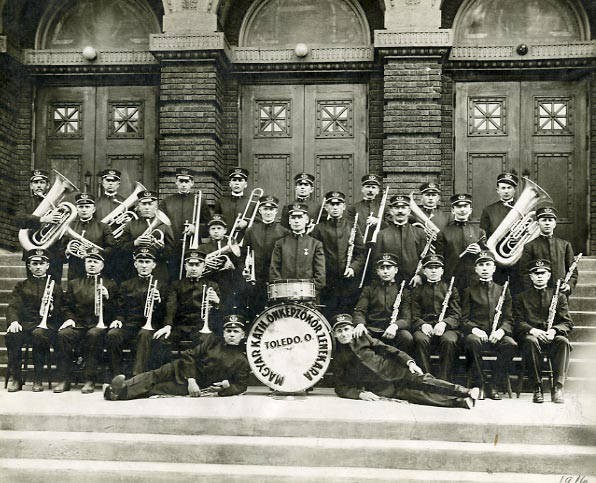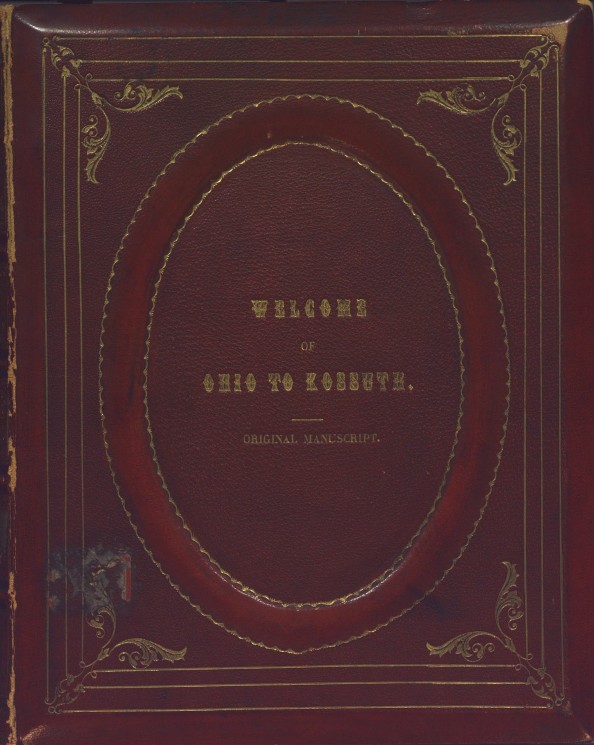“All For the People, and All By the People”–Lajos Kossuth’s Fight for Hungarian Independence

In February 1852, Ohio Governor Reuben Wood’s message to the Senate and House of Representatives stated the following:
Another subject of universal interest to the American people is the arrival of the Hungarian patriot upon our shores. It has created an excitement, in the bosoms of freemen, only equaled by the landing of our own Lafayette…

The Hungarian patriot of whom Wood spoke was Lajos (also known as Louis) Kossuth, a 19th-century lawyer, journalist, and patriot. His quest for democracy and independence for Hungary had driven him from his country, sending him on an aid-seeking mission, first to Great Britain and then to the United States.
Kossuth’s journey towards this moment had begun several years prior. He entered into politics at a relatively early age when he became deputy to a member of the National Diet. His role as deputy included reporting on Diet activities, and the quality of his writing, which leaned towards liberalism, began drawing attention, not only from supporters with similar liberal views, but also from the government who sought to silence those views. As a result, Kossuth was arrested on charges of high treason in 1837 and spent two years in prison, where he learned English by reading the Bible and the works of William Shakespeare.
If the government sought to silence Kossuth, however, they were unsuccessful; after his release, he was more popular than ever. He became editor of a liberal newspaper, and advocated for political reform and an independent legislature for Hungary, which was then governed by Austria. Several years later, in 1847, he succeeded in winning a separate constitution for Hungary within the Austrian Empire, and was named Governor-President of the newly-declared Hungarian Republic in 1849.

His tenure, however, was short-lived. Within two years, Kossuth was removed from office and found himself in exile. “Before I stepped across the frontier I lay down on the soil of my native land,” he recalled in his 1880 memoir, Memories of My Exile. “I took a handful of earth; one step, and I was like the hull of a wrecked ship, thrown up by the storm on a desert shore… Evil was victorious and I was driven from my home, my Eden.”
His fight did not end with his exile, however, and it was this fight that led him to stand in front of Ohio’s legislators on February 7, 1852, asking for financial assistance to support his cause. “The spirit of our age is Democracy. All for the people, and all by the people. Nothing about the people without the people… My nation will rise, called to resurrection by the eternal principles of the law of nature and of nature’s God. It will not lie in the grave longer than the holy number three, and will require your magnanimity by becoming the corner-stone of national independence on the European Continent.” So rousing was his speech that the General Assembly immediately moved to obtain the original manuscript, to be deposited at the State Library of Ohio. Unfortunately, however, the financial assistance he sought was not granted by Ohio.

Kossuth spent the rest of his life in exile, never ending his fight for independence for Hungary. Throughout his lifetime, he remained an inspiration, highly admired by such notables as Daniel Webster, who wrote a biography on Kossuth in 1851, entitled Sketch of the Life of Louis Kossuth, Governor of Hungary; President Millard Fillmore, who had helped to negotiate his release from prison and who welcomed him to the United States during his exile; Harvard’s chief librarian, John Landgon Sibley, who said of him that “his talents place him among the giants of the world”; and Abraham Lincoln, whose phrase “of the people, by the people, and for the people” in the Gettysburg Address were influenced by the similar lines in Kossuth’s speech to the Ohio legislature, quoted above. Kossuth died in Turin, Italy, in 1894, and remains a hero to the Hungarian people to this day.
The speech he wrote, with accompanying comments from Ohio legislators, still remains in the collection of the State Library of Ohio. It has been digitized and can be viewed in Ohio Memory. It remains a rousing, inspirational, gorgeous piece, and is a fitting read this Memorial Day weekend, when we remember those who have fought for freedom in the name of the country they love.
Thank you to Shannon Kupfer, Digital Initiatives Librarian at theState Library of Ohio, for this week’s post!
For more information, visit the following links:
- Daily Ohio State Journal, February 5, 1852 (via Ohio Memory)
- Louis Kossuth: A Celebrated, Disillusioned Hungarian Revolutionary’s Visit to Pittsburgh in 1852 (via Penn State University Libraries)
- The American Hungarian Federation
- Encyclopedia of Cleveland History: Louis Kossuth’s Visit (via Case Western Reserve University)
- Lajos Kossuth (via Wikipedia; includes images and a recording of Kossuth taken in 1890)



Leave a Reply
You must be logged in to post a comment.